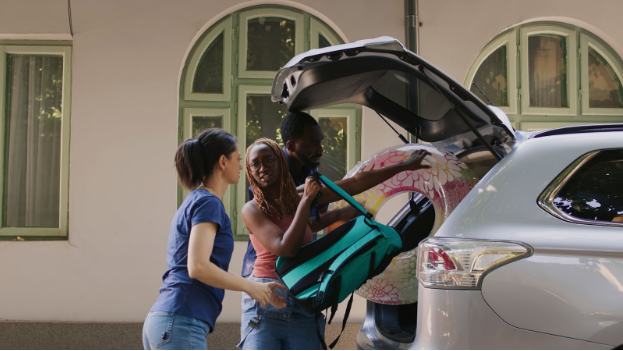Moving to college already comes with enough stress without worrying about how to get your car there safely and affordably. Between tuition costs, textbooks, and dorm expenses, students need every dollar to count. Finding easy ways to ship your carbecomes a priority when facing long-distance moves, study abroad programs, or summer internships across the country.
The reality is that many students find themselves needing reliable transportation once they reach their destination, but driving cross-country isn’t always practical or safe. College student car shipping services have become an increasingly popular choice for students who want the independence of having their vehicle without the marathon drive.

Why Students Choose Car Shipping Over Driving
Having a car on campus transforms the college experience. Students can run errands, explore their new city, visit friends at nearby schools, and even secure off-campus jobs that might otherwise be unreachable by public transportation. The convenience factor alone makes car ownership worthwhile for many students.
Long-distance driving presents several challenges that car shipping eliminates. A cross-country drive can take several days, require multiple hotel stays, and put significant wear on both the vehicle and the driver. Students often lack the time to make such lengthy trips, especially when trying to balance academic schedules, summer jobs, or family commitments.
Safety becomes another major consideration. Young drivers tackling unfamiliar routes, potentially in challenging weather conditions, face unnecessary risks. Professional transport carriers have experienced drivers who handle these routes regularly, reducing the likelihood of accidents or breakdowns.

Budget-Friendly Shipping Methods for Moving Car to College
Open Transport: The Student Auto Transport Standard
Open transport remains the go-to choice for most college students, and for good reason. This method involves loading vehicles onto large, multi-car carriers that you've probably seen on highways. While cars remain exposed to weather during transit, they're fully insured throughout the journey.
The cost savings make open transport particularly attractive to budget-conscious students seeking cheap car shipping for students. Rates typically run hundreds of dollars less than enclosed alternatives, and availability is excellent since most carriers operate open trailers. Scheduling flexibility is another advantage, as open carriers run more frequently on popular routes.
The main drawback involves weather exposure, but this rarely causes significant issues for standard passenger vehicles. Insurance coverage protects against any damage that might occur, giving students peace of mind at an affordable price point.
Terminal-to-Terminal: Extra Savings for Savvy Students
Students willing to handle their own pickup and delivery arrangements can save an additional $50 to $150 through terminal-to-terminal service. This option requires dropping off and collecting the vehicle at designated locations, typically large parking lots or transport company facilities.
The savings work particularly well for students flying to campus who need ground transportation only after arriving. Many terminals are conveniently located near airports or major highways, making the logistics manageable for affordable student car shipping. Some students coordinate with family members who can handle the terminal visits, making this an even more practical choice.
The trade-off involves the extra travel time and coordination required. Students need to factor in how they'll reach the terminal locations and whether the savings justify the additional effort involved.
Door-to-Door: Maximum Convenience
Door-to-door service offers the ultimate in convenience by picking up and delivering vehicles at specific addresses. Carriers can collect cars from family homes and deliver them directly to campus parking areas or nearby apartments.
This premium service costs more than terminal options but saves considerable time and effort. Students don't need to arrange separate transportation to terminals or coordinate with family members for vehicle handoffs. The carrier handles all logistics from start to finish.
Campus restrictions sometimes limit where large carriers can access, so students should verify delivery locations in advance. Most carriers work around these limitations by delivering to nearby accessible areas, maintaining much of the convenience factor.
Smart Money-Saving Strategies
Student discounts exist throughout the auto transport industry, though they're not always advertised prominently. Many companies offer reduced rates for students who can provide valid college identification. Some carriers provide seasonal discounts during peak moving periods like summer and winter breaks.
Group coordination with fellow students can unlock additional savings for college student car shipping. When multiple students from the same area need cars shipped to similar destinations, transport companies sometimes offer group rates. Social media and campus forums help students connect with others making similar moves.
Flexibility with dates often translates to better pricing. Students who can accommodate pickup and delivery windows rather than demanding specific dates frequently receive discounted rates. Booking several weeks in advance also helps avoid premium pricing that kicks in for last-minute arrangements.
Early planning proves particularly valuable during peak seasons when demand spikes and prices follow suit. Students who book transport services well ahead of their move dates secure better rates and have more carrier options available.
Getting Ready for the Shipping Process
Research becomes the foundation of a successful college student car shipping experience. Students should gather quotes from multiple companies, paying attention to services that cater specifically to college moves. Shipping personal vehiclesrequires working with licensed, insured carriers that maintain good safety records and customer reviews.
Paperwork preparation helps avoid delays or complications. Students need current vehicle registration, proof of insurance, and valid identification. International students face additional requirements including customs documentation, emission certificates, and proof of ownership that meets border crossing standards.
Vehicle preparation involves both cleaning and mechanical checks. A thorough cleaning makes it easier to document the car's condition before shipping, while checking fluid levels and tire pressure helps prevent issues during transport. Students should remove all personal belongings and aftermarket accessories that aren't permanently attached.
Documentation through photos provides protection for both students and carriers. Taking pictures of the vehicle from multiple angles, including close-ups of any existing damage, creates a clear record of the car's pre-shipping condition.

Common Pitfalls Students Should Avoid
Last-minute booking typically results in higher costs and fewer carrier options. Students who wait until the week before their move often find themselves paying premium rates or struggling to find available transport slots during busy periods.
Choosing carriers based solely on price can backfire when companies cut corners on insurance, licensing, or equipment maintenance. Car-Go Auto Transportand other reputable companies maintain proper licensing and insurance coverage, while budget operators sometimes skimp on these protections for car transport for students.
Insurance details deserve careful attention since coverage levels vary between carriers. Students should understand what protection is included in their shipping quote and whether their personal auto insurance provides additional coverage during transport.
International moves require extra preparation time and budget considerations. Students shipping cars across borders face longer transit times, additional paperwork requirements, and higher costs due to customs procedures and border crossing fees.
Special Considerations for International Students
International car shippinginvolves complex documentation that domestic moves don't require. Students must provide customs forms, detailed proof of ownership, and emission certificates that meet destination country standards. Some countries require additional inspections or modifications before vehicles can be registered locally.
Border crossing procedures add time and cost to international shipments. Students should budget for customs fees, potential storage charges, and longer transit times that can extend several weeks beyond domestic shipping timeframes.
Working with carriers experienced in international moves becomes particularly important since the process involves specialized knowledge of customs requirements and border procedures. These companies handle the complex paperwork and coordination required for successful international vehicle transport.

Making the Right Choice for Your Situation
College students have more car shipping options than ever before, making it possible to find arrangements that fit virtually any budget or timeline. The key lies in balancing cost considerations with convenience needs and personal circumstances.
Students with tight budgets often find open transport with terminal service provides the best value, while those prioritizing convenience typically prefer door-to-door arrangements. International students need specialized carriers familiar with border crossing requirements, while domestic moves offer more flexibility in carrier selection.
Planning ahead remains the single most important factor in securing good rates and reliable service. Students who research their options early, gather multiple quotes, and book services well in advance consistently achieve better outcomes than those who wait until the last minute.
Frequently Asked Questions
Ready to Ship Your Car to College?
Don't let vehicle transport stress add to your college moving checklist. Get started with your college student car shipping journey today and reach out toCar Go Auto Transportto get your free estimate. Compare rates, explore student discounts, and secure your booking early to save money and guarantee availability during peak moving seasons. Your college adventure awaits, and professional car shipping ensures your vehicle will be there when you need it most.